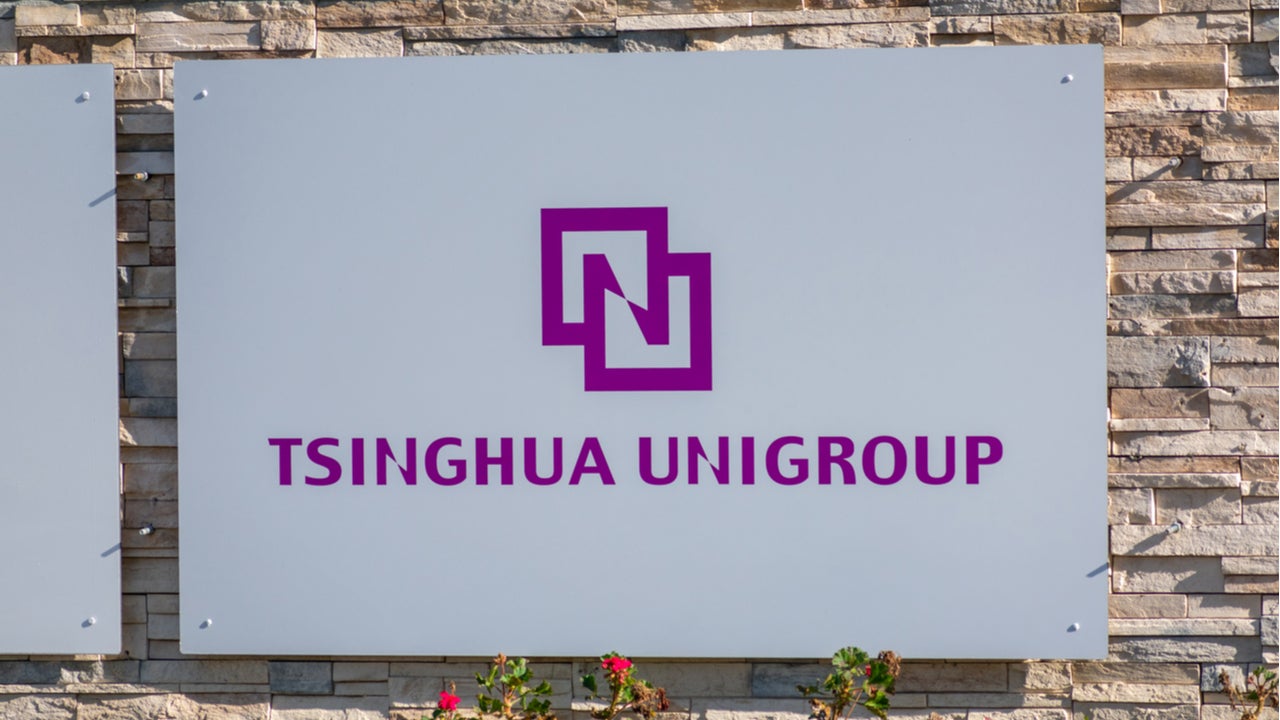
Tsinghua Unigroup, previously a promising Chinese tech company and semiconductor developer, has filed for bankruptcy and is seeking a massive bailout to save its chipmaking assets. Once backed by ample state funding and political support, Unigroup’s downfall highlights the complexity of China’s state-directed capitalist model in its quest to achieve microchip self-sufficiency.
The conglomerate affiliated with China’s top university, Tsinghua University, is burdened with more than 200bn yuan ($30.8bn) in debt and looking for a deep-pocketed investor to save its semiconductor and cloud computing expertise.
The company is reportedly taking applications from private investors, according to a statement released on the website of the National Enterprise Bankruptcy Information Disclosure Platform on Tuesday. Potential investors must have 50bn yuan ($7.7bn) in minimum total assets in the past year or possess 20bn yuan ($3bn) in minimum net assets, the statement said.
“The strategic investors should have operational capability and managerial experience in semiconductor and cloud businesses,” the group added in its statement. “They must be able to promote the development of our core businesses.”
The deadline for registration is 5 pm on September 5, and investment plans must be submitted before September 25. In addition, the company requires an upfront deposit of 500m yuan to Tsinghua Unigroup’s bank account.
Earlier this month, the company received a request to initiate bankruptcy restructuring procedures from state-owned Huishang Bank, which shows that firms backed by the Chinese government are not invincible.
How well do you really know your competitors?
Access the most comprehensive Company Profiles on the market, powered by GlobalData. Save hours of research. Gain competitive edge.

Thank you!
Your download email will arrive shortly
Not ready to buy yet? Download a free sample
We are confident about the unique quality of our Company Profiles. However, we want you to make the most beneficial decision for your business, so we offer a free sample that you can download by submitting the below form
By GlobalDataDescribing Tsinghua Unigroup as a semiconductor holding company rather than a known innovator would be more apt. The Beijing-based company has a total of 286 subsidiaries, making it one of the country’s largest tech conglomerates.
Prominent subsidiaries include UNISOC, China’s fifth-largest mobile phone chip supplier, Yangtze Memory Technologies (YMTC), a memory chip manufacturer, New H3C Technologies, a digital solutions provider, Guoxin Micro, a microelectronics manufacturer and UniCloud Technology, an IT solutions provider.
The debt it has amassed is mainly due to delays and mounting capital costs at two of its dynamic random-access memory (DRAM) plant projects, explains Michael Orme, senior analyst and China specialist at GlobalData.
“Tsinghua can easily feed the Huishang tiger by selling stakes in two of its progeny – YMTC, which is now a pretty formidable up and running 3D Nand operation and in fabless security chip specialist Unisoc which is valued at $10bn,” he said.
This solution could, however, lead to a scramble for Unigroup’s semiconductor assets by business creditors and other interested parties, an outcome that the company is arguably trying to avoid.
Tsinghua Unigroup 101
Tsinghua Unigroup was founded in the 1980s by Tsinghua Holdings, which is affiliated with China’s prestigious Tsinghua University, the alma mater of president Xi Jinping. The company also once counted the son of the former Chinese President Hu Jintao as its party secretary – the key political role in a company that facilitates communication with the Chinese Communist Party (CCP).
The company’s CEO Zhao Weiguo, who himself also graduated from Tsinghua University, is a well-known real estate mogul. Since his appointment as CEO in 2009, Zhao initiated a wave of debt-fuelled expansions in numerous tech-related and non-tech-related industries.
He also reached some high-profile international agreements. Notably, he secured a $1.4bn investment deal from Intel to develop smartphone chips. According to GlobalData’s deals database, Intel owns a 20% stake in one of Tsinghua Unigroup’s subsidiaries, UNISOC (formerly known as Spreadtrum).
In another notable move, he made an offer to buy a stake in Taiwan Semiconductor Manufacturing Company (TSMC), the world’s leading foundry, but was reportedly rebuffed by TSMC founder Morris Chang.
Laden with state funds and political backing, Tsinghua Unigroup made headlines in 2015 when it revealed plans to buy the American chipmaker Micron in a colossal $23bn bid. The audacious gambit set off alarm bells in Washington, where the move was seen as an example of Chinese companies using state financing to buy sensitive technologies.
Six years ago, the company was seen as the embodiment of the tech trade war between the US and China. However, Unigroup’s bankruptcy announcement highlights that state-backed firms have an Achilles heel too.
However, Tsinghua Unigroup is too big a name to go down that easily argues Orme. “The affair will not be allowed to harm the operations of Tsinghua portfolio companies, given the high priority placed by Beijing on building a US-independent Chinese semiconductor supply chain.”
More than anything else, Tsinghua Unigroup’s failings show that China’s technology-geared government funds would benefit from more rigorous due diligence.
Beijing betting big on semiconductor developers
Over the last three years, the Chinese semiconductor industry has seen wasteful and sometimes fraudulent excess as Beijing tried to kick start a startup boom.
“It was a wild east. It tried to do in chips what it did in solar panels and is doing in EVs, allowing for an inevitable shakeout down the line,” Orme explains.
As a result, there have been reports of fake companies being set up as part of multi-billion yuan corruption schemes.
“Trouble is that Beijing policies are administered through local authorities whose apparatchiks compete madly with each other to impress the Politburo standing committee in the interests of preferment. Success at the local level in prestige projects, economic growth, social stability is the path to the Politburo,” Orme explains.
Chinese President Xi Jinping recently appointed his right-hand man, Liu He, as the country’s “chip czar” to clean up the system. Liu has been tasked with leading a more result-driven approach in the semiconductor industry.
“Over the last two years, six multi-billion dollar startups have gone belly up before a single integrated circuit was produced,” Orme added. Under the government’s new approach, such wasteful spending is to be avoided.
The government has shelled out many market incentives and subsidies – such as the ones that boosted Tsinghua Unigroup’s books – with the aim of advancing the domestic semiconductor sector.
China created 58,000 semiconductor firms between January and October 2020 – roughly 200 a day, The New York Times reported. While most of these companies may end up failing, Beijing is placing its bet that a few may create a breakthrough.
In recent years, Chinese officials have pumped substantial sums of money into the country’s tech sector. According to GlobalData’s analysis, China recently announced a $1.4tn state programme to support R&D in key enabling technologies over the next five years.
It also doubled down on ambitions to supply 75% of its semiconductor demands with domestically manufactured chips by 2025. By 2035, the country wants to be fully self-sufficient in the semiconductor market.
Beijing’s reluctance to jump to Unigroup’s aid should be read as a warning sign. In January, sources inside the company told Reuters that Unigroup’s chip units failed to reach hoped-for revenue and that too much of the company’s investment went into unrelated and often unprofitable businesses, including real estate, online gambling and an Indian phone maker.
This case highlights that tech companies need to realign their priorities if they want support from the Chinese state. In this particular case, “there is no evidence Tsinghua was duped, only that it bit off more than it could chew with very costly, long-term projects,” Orme concluded.





